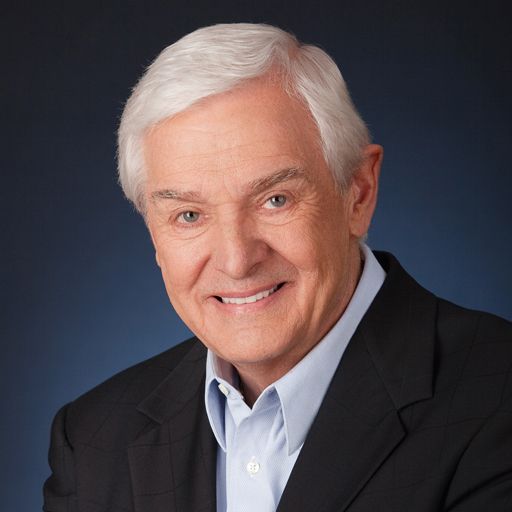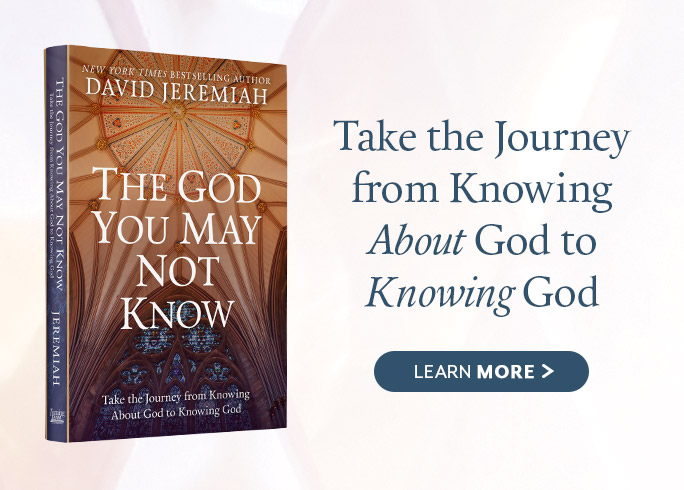We shouldn’t just live for today, because today doesn’t last very long. We cannot live just for the moment, because the moments are fleeting. There’s an infinite sadness to living a life unfocused on eternity. How we invest our time, energy, labor, and money either guarantees or nullifies our legacy.
Life is short. Job said that his life was as swift as a weaver’s shuttle. Our impulses toward instant gratification aren’t to be trusted. Hoarding our resources isn’t a worthy goal. We’re created with eternity in our hearts, and our lives have everlasting value. When we live with eternity in view, our works will follow us. Today is important only in light of what we do for God.
Perhaps you’re thinking, “But what can I do? What legacy can I leave?” There’s an old African-American spiritual that says, “Sometimes I get discouraged and think my work’s in vain.” That reflects the weariness we sometimes feel. But 1 Corinthians 15:58 replies, “Be steadfast, immovable, always abounding in the work of the Lord, knowing that your labor is not in vain in the Lord.” When we give our lives to Jesus Christ, the things of earth grow strangely dim. The values of eternity grow increasingly bright. Here are some ways to help along the process.
Take every opportunity to sow the seed of the Gospel. When the Lord is finished with us, He will take us to heaven. But until then, there’s a message to spread. We may not see many of the results, but we can faithfully sow the seed. We can teach children’s classes, give Christian tracts and literature to the neighbors, invite our coworkers to church, learn to share our testimony, and pray for opportunities to share the plan of salvation.
Do all the good you can do. The Bible assures us that as we feed the hungry, visit the incarcerated, care for the poor, and provide for widows and orphans, we’re doing it as to Jesus. These simple acts of kindness are eternal deeds of Christlikeness that procure heavenly rewards (Matthew 25:40).
Give liberally to the work of the Kingdom. George Sweeting, former president of Moody Bible Institute, said, “When we come to the end of life, the question will be ‘How much have you given?’ not ‘How much have you gotten?’”
Engage in a ministry of prayer. Don’t just pray for your own temporal needs but for eternal progress in the work of God’s kingdom.
Leave a written testimony for your descendants. You have a legal will, but do you have a “legacy will”? The idea comes from Genesis 49, when Jacob left his sons his “spiritual estate”—his blessings, wisdom, and advice. We can do the same. Write out your story, sharing what Christ means to you, and imparting advice to your descendants. It may be brief or lengthy. Someday a great grandchild may read it and come to faith in Christ.
At the close of a service at Calaba Baptist Church in Bombay in 1941, an Indian woman was baptized. But she wasn’t the convert of the Pastor, she was Adoniram Judson’s convert, though he’d lived a hundred years before and a thousand miles away in Burma. How could she be Judson’s convert? Some women were among the descendants of people influenced by the incomparable life and outstanding witness of Judson. The woman baptized fell into their company as a seamstress, and after a few days became a believer.
Over a hundred years ago, more than a thousand miles away—the work of Adoniram Judson was still bearing fruit through the descendants of those he had led to Christ. That’s what it means to do business till He comes.
Our days are numbered, and we’re moving quickly from today to tomorrow. All our pleasures and possessions are consigned to oblivion, but the legacy we leave for Christ will endure forever. It’s been said many times in many ways, but never better than with these simple words: “This one life will soon be past; only what’s done for Christ will last.”
Let’s not waste a single day. Live with eternity in mind!
###
Dr. Jeremiah is the founder and host of Turning Point for God and senior pastor of
Shadow Mountain Community Church in El Cajon, California.
For more information on Turning Point, go to








